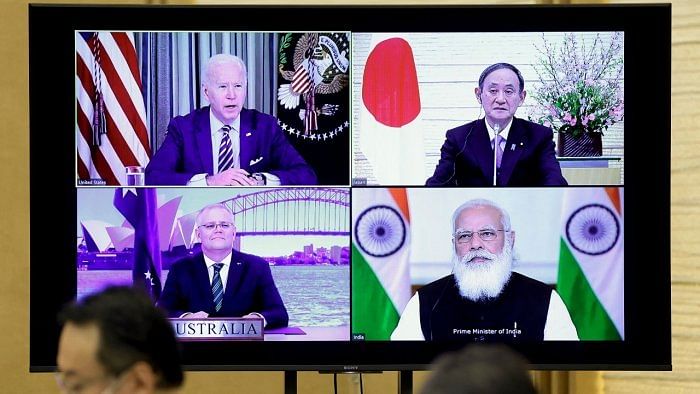
The Quad’s four member-states, India, Japan, the United States and Australia, can draw quiet satisfaction from their recent virtual meeting. This was the grouping’s first summit ever. Besides, unlike in the past when Quad meetings saw the four countries put out separate statements, this time the summit culminated in a joint statement. ‘The Spirit of Quad’ signals a greater unity of purpose and meeting of minds. The summit produced substantial outcomes. The four countries agreed to pool their resources, manufacturing and logistics capabilities to deliver a billion Covid-19 vaccine doses to countries in the Southeast Asian and Pacific regions. Back in 2004-5, the four countries came together as the Tsunami Core Group to coordinate disaster relief to countries in the Indo-Pacific that had been battered by the December 2004 tsunami. It was out of this cooperation that the idea of the Quad emerged. That the first substantial joint effort by Quad will go towards addressing a global public health concern is heartening. The summit also decided on the creation of working groups on the vaccine implementation plan, climate change and critical and emerging technologies.
The Quad’s joint statement did not mention China; the closest reference was to threats and “challenges to the rules-based maritime order in the East and South China Seas”. One can infer from their commitment to a region “free, open, inclusive, healthy, anchored by democratic values, and unconstrained by coercion” and pledge to promote a “free, open, rules-based order, both in the Indo-Pacific and beyond” that they are referring to China. However, overall, the ‘Spirit of Quad’ statement does not display an overtly confrontationist sentiment, militarism or a coming together of nations against another power. Rather, the spirit that the statement generates is positive, co-operative and inclusive.
Over the past decade, China has mocked and condemned, even issued warnings to the Quad. The Quad’s joint statement should prompt Beijing to pause and rethink its aggressive policies in the Indo-Pacific. The statement sends out a cooperative message: should China be a part of a rule-based order, it can be part of a mutually beneficial relationship that the Quad is working to set up in the Indo-Pacific. If China persists with its flagrant violation of international norms in pursuit of hegemonic ambitions, then it can count on the Quad countering it.